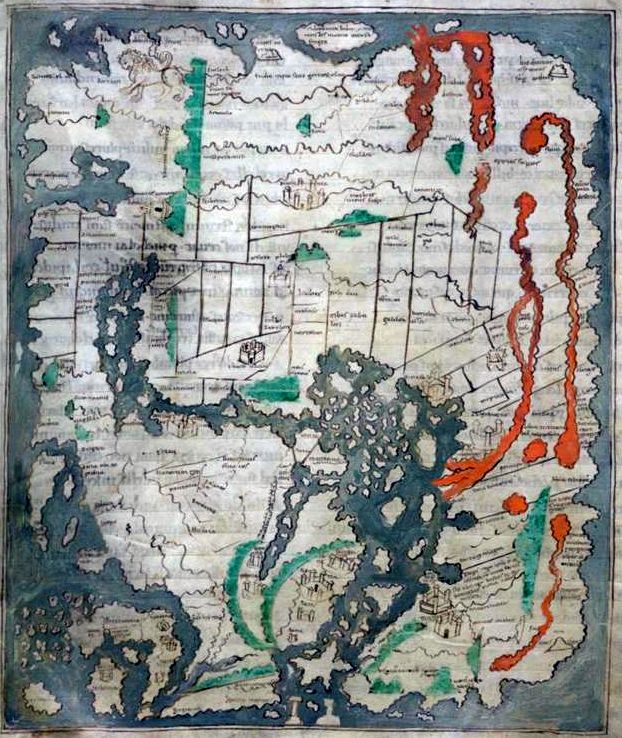Welcome to DU!
The truly grassroots left-of-center political community where regular people, not algorithms, drive the discussions and set the standards.
Join the community:
Create a free account
Support DU (and get rid of ads!):
Become a Star Member
Latest Breaking News
Editorials & Other Articles
General Discussion
The DU Lounge
All Forums
Issue Forums
Culture Forums
Alliance Forums
Region Forums
Support Forums
Help & Search
World History
Related: About this forumWhat the earliest fragments of English reveal
http://www.bbc.com/culture/story/20190118-how-migration-formed-the-english-languageThe interconnectedness of Europe has a long history, as we’re reminded when we explore the roots of the English language – roots that stretch back to the 5th Century. Anglo-Saxon England “was connected to the world beyond its shores through a lively exchange of books, goods, ideas,” argues the Medieval historian Mary Wellesley, describing a new exhibition at the British Library in London – "Anglo-Saxon Kingdoms: Art, Word, War – that charts the genesis of England".
What we understand as English has its roots in 5th-Century Germany and Denmark, from where the Anglian, Saxon and Jute tribes came. As the Roman legions withdrew around 410AD, so the Saxon war bands (what Rome called ‘the barbarians’) landed and an era of migration from the Continent and the formation of Anglo-Saxon England began. The word “English” derives from the homeland of the Angles, the Anglian peninsula in Germany. Early English was written in runes, combinations of vertical and diagonal lines that lent themselves to being carved into wood and were used by other closely related Germanic languages, such as Old Norse, Old Saxon and Old High German.
The exhibition also includes a charming 11th-Century English map of the world, which gives us an insight into Anglo-Saxon identity. Britain and Ireland are squeezed into the bottom left-hand corner. (The two main population centres in England, London and Winchester, are noted.) The Mediterranean Sea is at the centre of the world’s land mass, with Rome prominent near the bottom on the left (‘Ro’ and then ‘ma’, with towers in between); across the water, Jerusalem is also prominent. Africa looms large on the upper right (follow the orange line up from the Nile delta), and India is the roughly triangular mass at the top centre.
This worldview was inherited from the Romans, who regarded Britain as being on the far edge of the world, but remained tied to the ‘centre’ by the Christian religion. Throughout the Anglo-Saxon era, which ended with the Norman Conquest in 1066, there was religious (and with it, intellectual) traffic across Europe.

4 replies
 = new reply since forum marked as read
Highlight:
NoneDon't highlight anything
5 newestHighlight 5 most recent replies
= new reply since forum marked as read
Highlight:
NoneDon't highlight anything
5 newestHighlight 5 most recent replies
What the earliest fragments of English reveal (Original Post)
left-of-center2012
Jan 2019
OP
2naSalit
(93,561 posts)1. Interesting.
Thanks for posting. I studied cultural anthropology w/strong linguistics bent in college. I'm always interested in this sort of thing, though I don't go looking for much info lately because, well, politics, my other path of study.
![]()
Pacifist Patriot
(24,912 posts)2. Thanks! And I'll say this to anyone traveling to London...
The museum at the British Library is an overlooked jewel. It is free and open to the public, contains many fascinating items in the collection, and is essentially next door to King's Cross station which has a fantastic champagne bar. I love that area of the city.
Reader Rabbit
(2,664 posts)4. I'll second this.
My mom and I just got back from a trip to London, and the BL was fantastic. I wish we could have spent more time there!
Basic LA
(2,047 posts)3. Very informative post.
Thank you.